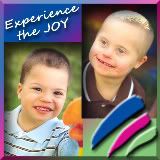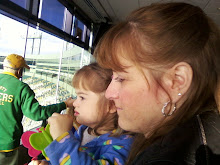I have started to do more public speaking about my experiences as a parent of a child with special needs. To me, it is all about awareness, if you couldn’t already tell this from this blog. Unfortunately there needs to be more awareness of what parents go through when receiving and coping with a diagnosis, especially when it comes to the world of helping professionals. As a helping professional, I can admit that I was clueless about all of this before I started this journey.
Recently to prepare for a presentation, I did a little research on the nature of the published professional literature on parents with children of disabilities. I am afterall one of the parents now, so I should know what is said about me, right? In the Handbook of Disability Studies, Phillip M. Ferguson (2003) gives a very nice overview of what has been published about parental reactions to their child’s disability. I will be discussing these in a number of postings. I really appreciate Ferguson’s work on summarizing the literature on this subject and hope you find this interesting as well.
Ferguson identifies the psychodynamic view of parental reactions as being most prominent in the published literature. He notes that this area is receiving less attention more recently, but that the single largest number of publications centers on this view. Psychodynamic (quick…think Sigmund Freud) looks at defense mechanisms and neurotic paths that parents can take in reaction to a diagnosis of a disability. Doesn’t this sound uplifting? So we see things like hostility, denial, grief, and guilt. These are viewed as problems. Pathology. But Ferguson raises a great point (and becomes my hero in the process) – he states that it may be possible that through viewing parents this way some professionals may avoid having to look at their own inadequacies in their performance with clients. Like did they give the diagnosis in the best way possible – or was it over the telephone and one parent having to tell the other like was in our case? Are strengths discussed? Or is it just centered on weaknesses? There are so many things that professionals should consider in talking to parents about the needs of their child. Just who might be the neurotic one here? The parent? The professional? Both? Neither? Let’s try to get more and more possibilities of it being neither! This can only be done through awareness and learning. Actually Ferguson also states that what was once seen as denial may actually be more of a denial of insensitive terminology used, like the r-word. Another area for awareness. So much to do, but so little time, right?
-Karyn
What day is it, even?
5 years ago


















There is actually a Neurotics Anonymous:
ReplyDeletehttps://secure.wikimedia.org/wikipedia/en/wiki/Neurotics_Anonymous
Thanks, I didn't know that, but it makes sense to have something like that given the success of support groups. Interestingly on that site it talks for programming for substance abuse for the intellectually disabled too (minus the person first language though).
ReplyDelete